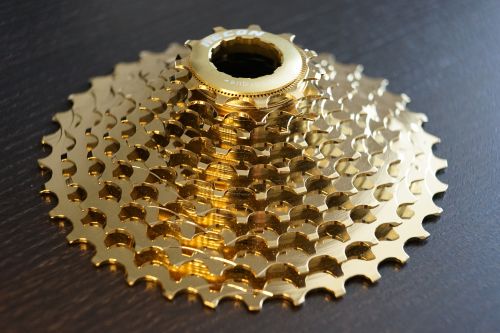NEW YORK (BRAIN) — For duty purposes, bike cassettes are once again being treated just like freewheels — exempt from all duty requirements, thanks to a recent ruling by the U.S. Court of International Trade.
The dispute dates to June 2012, when the U.S. Customs and Border Protection Service rebuffed Trek Bicycle Corp.'s formal protest over a Customs decision to reclassify cassettes and levy a 10 percent duty on them. Trek, backed by the Bicycle Product Suppliers Association, challenged that decision in the international trade court. Five years and 14 days later, on June 19 this year, Trek won a stipulated judgment and Customs agreed to rescind the duty.
What makes the case worth noting, besides the money involved, is this appears to be the first time a bicycle company has taken such a case to the Court of International Trade and won.
In pushing the case forward, the BPSA put up $117,500 to help finance five years of research and litigation that would allow importers like Trek, QBP and others to get at least a partial refund on duty they've already paid.
But more important, and dealers should take note, the court's decision trims 10 percent off the imported costs of all cassettes to be sold in the future.
Adam Micklin, BPSA president and Felt's vice president of global sales and marketing, said the decision to back Trek's fight with Customs is an example of the "collective power" that the BPSA membership can wield.
"Collectively we're much stronger. For Trek or QBP to individually do this would have cost hundreds of thousands of dollars," Micklin said. While no one quite knows the financial impact of the ruling, long term it could run into the millions, he added.
QBP legal counsel Matt Moore, Trek's Jonathan Fritz and, more importantly, lead attorneys Ted Murphy and Jon Foote at the Washington, D.C.-based law firm Baker & McKenzie get the credit for the court's decision, Micklin said.
Moore, a BPSA board member, has been following the issue for years. Trek was the first company to receive notice of the new duty from Customs, Moore said. Several months later, QBP got a similar notice, and soon after the BPSA put out a bulletin to its members.
When asked how big a deal the victory was, Moore said, "It's a pretty big deal. It's the first time a bicycle company has gone to the Court of International Trade to resolve a tariff issue. And it's remarkable that it was successful."
In general, the courts tend to back the government's position, so this is "fairly unusual," Moore added.
Trying to pinpoint the decision's financial impact is difficult at best and depends on the company that has been importing cassettes and at what cost per cassette. Moore declined to discuss QBP's financial stake in the outcome.
For the most part, distributors — and Trek has a substantial distribution arm — will benefit immediately since imported cassettes, much like freewheel sprockets, now enter the U.S. duty free.
Companies that complied with the original Customs decision, filed March 18, 2011, have been paying that 10 percent ad valorem tax on every cassette. And most importers have passed the cost on to dealers through wholesale price increases.
However, companies can now seek what is essentially a tax refund for at least some of the duty they have paid.
The nub of the dispute centered on Customs' decision to reclassify cassettes under a different category in the U.S. Harmonized Tariff Schedule. That decision hinged on the commercial meaning of the term "free-wheel sprocket wheel" and whether that term included newer multi-cog cassettes.
Up until the reclassification, cassettes had been imported duty free under the same category as free-wheel sprockets, HT 8714.93.70, as well as several other categories.
Customs subsequently decided that cassettes should be reclassified separately under HT 8714.99.80, which required a 10 percent duty. Customs, in its decision, cited various definitions used by the late Sheldon Brown and definitions taken from "Sutherland's Handbook for Bicycle Mechanics" to buttress its ruling.
"These differences in design and functionality have led the bicycling industry to clearly distinguish and market clusters of the instant cogs as free-hub cassettes as opposed to freewheels," said Myles Harmon, director of Customs' commercial and trade facilitation division, in reclassifying the hubs.
The court rejected that decision and cassettes will again be classified under the freewheel tariff code, HT 8714.93.70.


